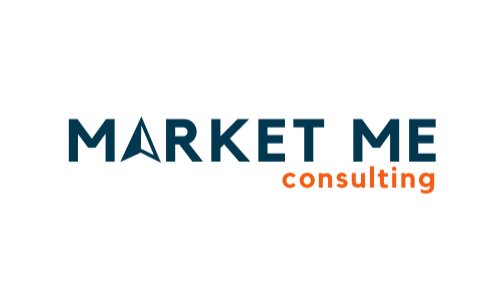Nonprofit Marketing Strategies That Actually Work
What is Nonprofit Marketing?
Doing good is your mission. But let’s face it—doing good in the world doesn’t mean people automatically hear about it. That’s where nonprofit marketing strategies comes in. Whether you’re a team of one or a full-fledged marketing department, nonprofit marketing is essential for expanding your impact.
In this post, we’ll break down what nonprofit marketing is (and isn’t), the powerful benefits it brings to your organization, and the best strategies that will make your mission shine—without blowing your budget.
At its core, nonprofit marketing is the art and science of spreading the word about your mission, building relationships with supporters, and driving action—whether that's donations, volunteer sign-ups, event attendance, or advocacy. It’s about telling your story and connecting with your audiences.
Key Elements of Nonprofit Marketing
Brand messaging: Clear, mission-aligned communication that says who you are and what value you deliver.
Audience targeting: Knowing exactly who you want to reach with your messaging (and not shouting into the void).
Multi-channel promotion: Using email, social media, events, PR, and more to spread your story.
Action-driving content: Whether it’s “Donate Now” or “Volunteer Today,” your message should have a clear next step.
Data-driven decision making: Using data to build your marketing strategies, analyzing how your marketing strategies performed, and using insights to optimize your future initiatives.
Why Nonprofits Need Marketing
1. Visibility = Opportunity
People can’t support a cause they’ve never heard of. Strategic marketing builds your visibility—and that visibility builds an opportunity for people to support your cause. Consistent messaging, visuals, and tone of voice make you look polished, professional, and legit.
2. It Boosts Fundraising
Donor studies have shown that many donors do not give to nonprofits simply because they have not been asked. You have to tell them what you need and why it matters. When done right, nonprofit marketing creates a compelling narrative that turns interest into investment.
3. It Deepens Engagement
Your volunteers, board members, and staff want to feel connected to your mission. Marketing helps build that community. A well-crafted email or social post that tells the story of someone your nonprofit has helped, can improve morale, retention, and advocacy.
Effective Nonprofit Marketing Strategies (That Won’t Break the Bank)
1. Start With a Strong Brand
Your logo, colors, and message all matter. Ask yourself:
Is our mission statement easy to understand?
Is our brand name representative of our current mission?
Do our visuals reflect our mission?
If the answer is “meh,” it’s time for a brand refresh. Consider hiring a professional to help develop a unified look and voice. You can also read our blog article on nonprofit branding tips.
2. Define Your Audience
You can’t be everything to everyone. Who are you really trying to reach—donors, policy makers, Gen Z volunteers, local press? Once you know your core audiences, tailor your messaging and outreach strategies to speak directly to them.
3. Build an Email List You Actually Use
Email marketing is still the MVP of digital communications. But your newsletter shouldn’t sound like a board meeting in text form. Aim for:
Short, compelling subject lines
Real stories mixed with impact stats
One clear call to action per message
Pro tip: segment your list by audience type so you’re sending the right message to the right people.
Check out our nonprofit email marketing guide for tips!
4. Leverage Social Media
Pick 1-2 channels where your audience actually hangs out and post content that educates, inspires, and invites action. Think:
Behind-the-scenes videos
Quick staff introductions
Testimonials from people you’ve helped
Calls to action
Download our FREE guide on social media best practices for nonprofit organizations.
5. Google Ad Grants
Google Ad Grants provides eligible nonprofits with $10,000 a month to promote their nonprofit – that is $120,000 a year in free advertising! You can use Google Ad Grants to market your nonprofit in a variety of ways such as promoting your services, recruiting volunteers, building your email list, and raising money.
Check out article on Tips to Using Google Ad Grants for more helpful information.
Here is more information on the Google Ad Words program.
6. Use Storytelling to Build Emotional Connections
Stats tell. Stories sell. Whether it’s a family you helped find a home and nutritious meal or a teen who thrived thanks to your mental health program, your audience wants to hear about real people and real change. Use photos, quotes, and short videos whenever you can.
Check out our blog article on how to use storytelling in marketing for more tips.
7. Track What Works (and Ditch What Doesn’t)
Even the best content won’t matter if no one sees it. Use tools like Google Analytics, Email reports, and social media insights to track open rates, engagement, and conversions. Then tweak accordingly.
Remember: marketing is part science, part magic, and part trial and error.
Best Practices to Keep in Mind
Be consistent: Use the same tone, colors, and messaging across all platforms.
Be clear: No jargon. No 5-sentence mission statements. Make it simple and sticky.
Be bold: Don’t be afraid to ask. Whether it’s for time, talent, or treasure—clarity and confidence go a long way.
Be authentic: People give to people, not organizations. Let your humanity shine through.
Nonprofit marketing is the bridge between your cause and your community. With the right strategy (and a little effort), you can increase your visibility, expand your impact, and gather the support you need to keep changing the world.
Conclusion
At Market Me Consulting, we use our real-life experience working with large and small nonprofits to help them achieve their marketing goals. If you’re looking for expert guidance on developing a nonprofit marketing strategy, please contact us.
Check out our other blog articles for marketing and fundraising best practices and tips.

